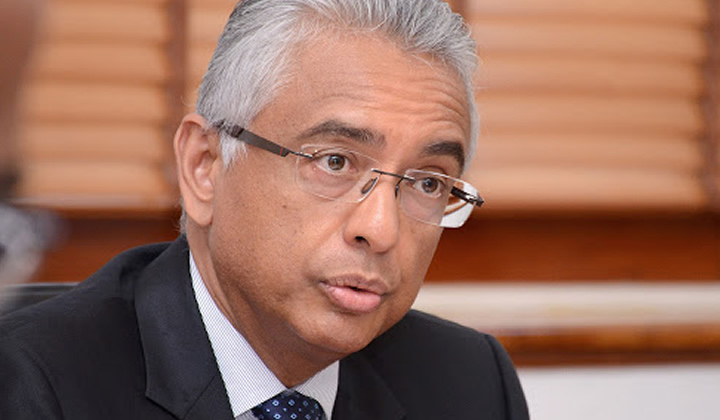Mauritius prime minister accepts ‘huge defeat’ in election
3 min read
Mauritius PM, Pravind Jugnauth

Mauritius PM, Pravind Jugnauth
Prime Minister Pravind Jugnauth of Mauritius has admitted that his coalition, L’Alliance Lepep, suffered a “huge defeat” in the parliamentary election held on Sunday. Speaking to journalists on Monday, Jugnauth, 62, acknowledged the result, stating, “The population has decided to choose another team.”
Jugnauth, who was seeking a second five-year term in office, faced stiff competition from his main rival, Navin Ramgoolam, 77, leader of the Alliance of Change coalition. As the votes continue to be counted, Ramgoolam, a former prime minister and veteran political figure, appears poised to take over leadership of the Indian Ocean island nation.
Mauritius, often regarded as one of Africa’s most stable democracies, saw this election overshadowed by controversy. A phone-tapping scandal, in which recordings of private conversations involving public figures were leaked online, rocked the political landscape. In response, the government briefly imposed a social media ban, which sparked widespread protests. After 24 hours, the decision was reversed, but the controversy still loomed over the election.
While the final results have not been officially announced, early indications suggest that Ramgoolam’s coalition is on track to win a significant majority. Speaking to the media, Ramgoolam expressed confidence, saying his party was “heading towards a huge victory,” although he stopped short of providing specific details until all votes had been counted. “We must respect this choice,” Jugnauth said of the anticipated shift in leadership, adding, “We wish the country and the population good luck.”
The atmosphere in Port Louis, the capital city, reflected the widespread anticipation and hope for change. As news of the possible shift in power spread, jubilant crowds gathered in the streets, celebrating with music, dancing, vuvuzelas, and the waving of national flags. Firecrackers lit up the sky, signaling a collective desire for a new direction for the country.

Many citizens, like Ibrahim, a voter for the Alliance of Change, cited “growing public dissatisfaction” as a key factor in the ruling coalition’s defeat. The high cost of living has been a major issue for many Mauritians in recent years, with inflation and rising prices affecting daily life. Additionally, there was widespread concern over issues of governance and corruption under the incumbent government.
Both major parties had promised reforms aimed at improving the lives of ordinary Mauritians. On the campaign trail, Ramgoolam, whose father was a prominent figure in the country’s liberation movement, vowed to implement policies such as increasing pensions, providing free transport and internet services, and cutting fuel costs. His proposals resonated with many voters who felt the ruling party had failed to address the pressing economic challenges faced by the population.
Arvin Boolell, a former foreign minister and member of the opposition coalition, declared the election result as a “victory of the people,” underscoring the shift in public sentiment. “People want change, and they have spoken loudly,” Boolell remarked.
Voter turnout for the election was high, with around 80% of eligible voters participating, according to the electoral commission. Citizens went to the polls to select lawmakers for the 62 seats in the National Assembly, which will represent the country for the next five years. In addition to these regular seats, up to eight “best loser” seats are allocated to ensure fair ethnic representation in parliament, a feature unique to Mauritius’ electoral system.
This election also followed a significant diplomatic development: a historic agreement between Mauritius and the United Kingdom, in which the UK relinquished its claim over the Chagos Islands, a disputed territory long sought by Mauritius. This diplomatic victory was a major point of pride for the government, though it did little to sway the political climate in the face of mounting domestic discontent.
As the country looks to move forward with its new leadership, all eyes will be on the policies and actions of the incoming government. Whether Ramgoolam and his coalition can deliver on their promises and address the concerns of the Mauritian population remains to be seen. But for now, the mood in the streets reflects a sense of hope and optimism for a fresh chapter in the nation’s history.